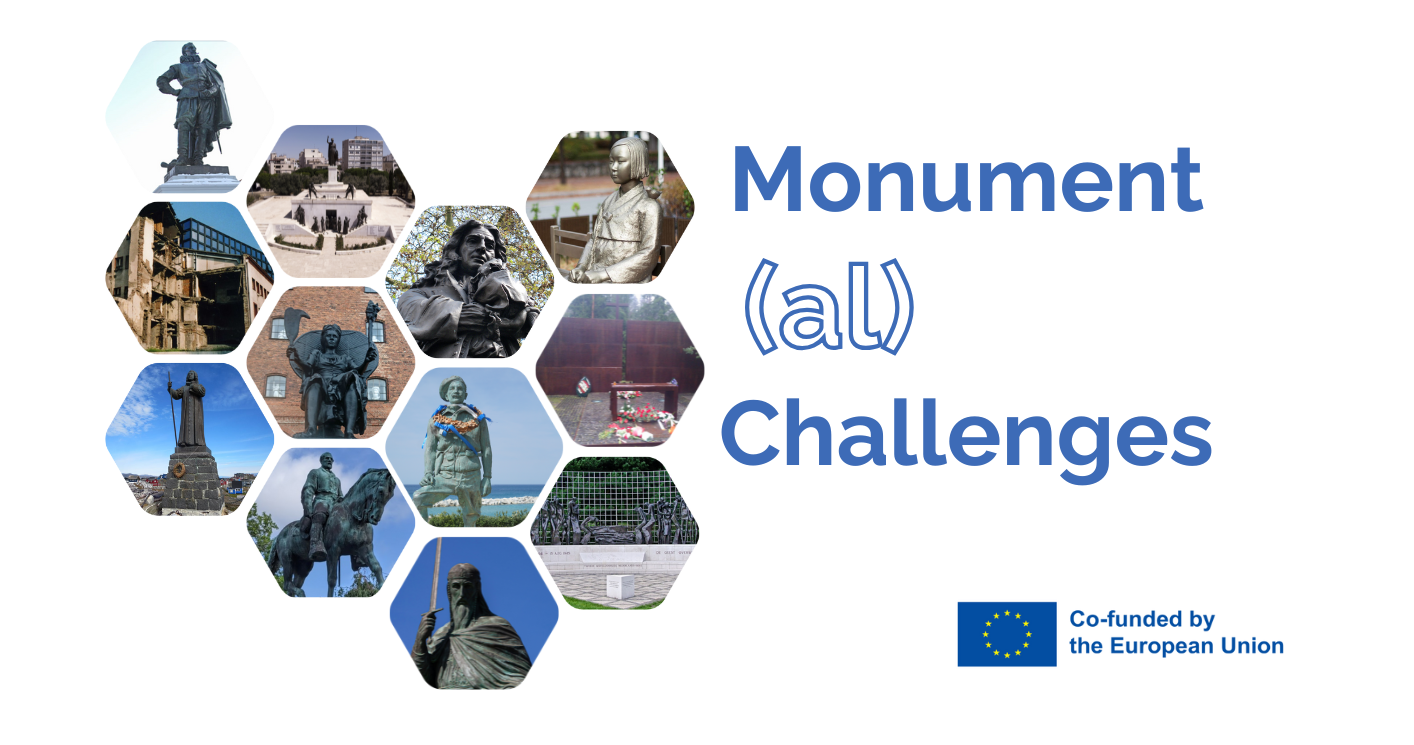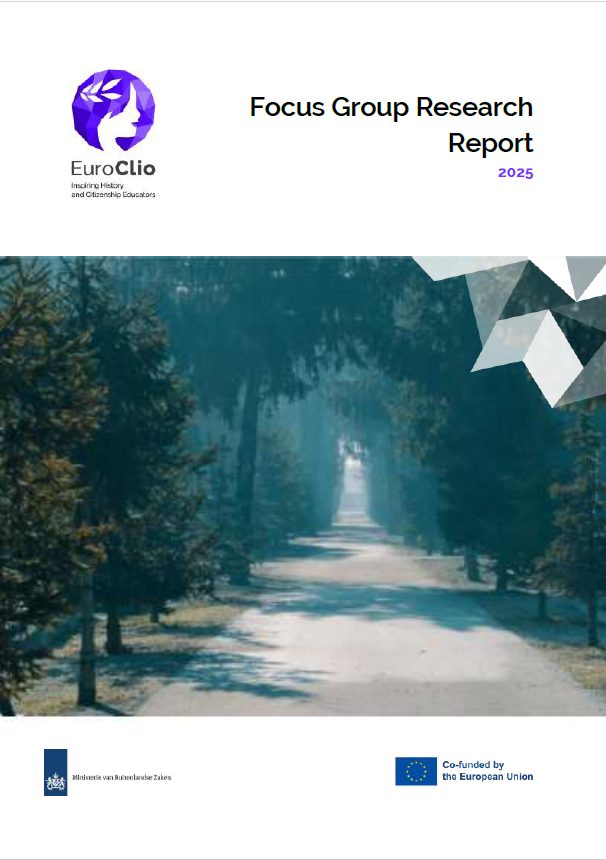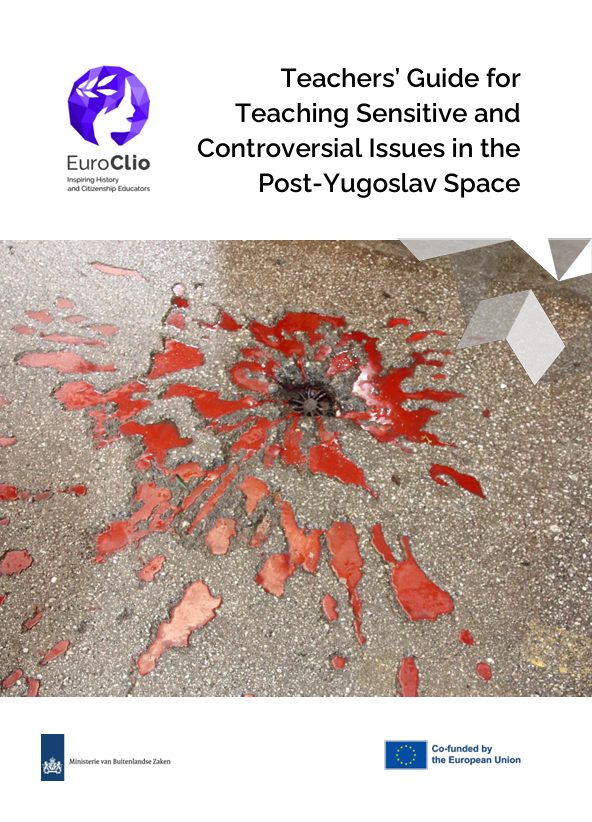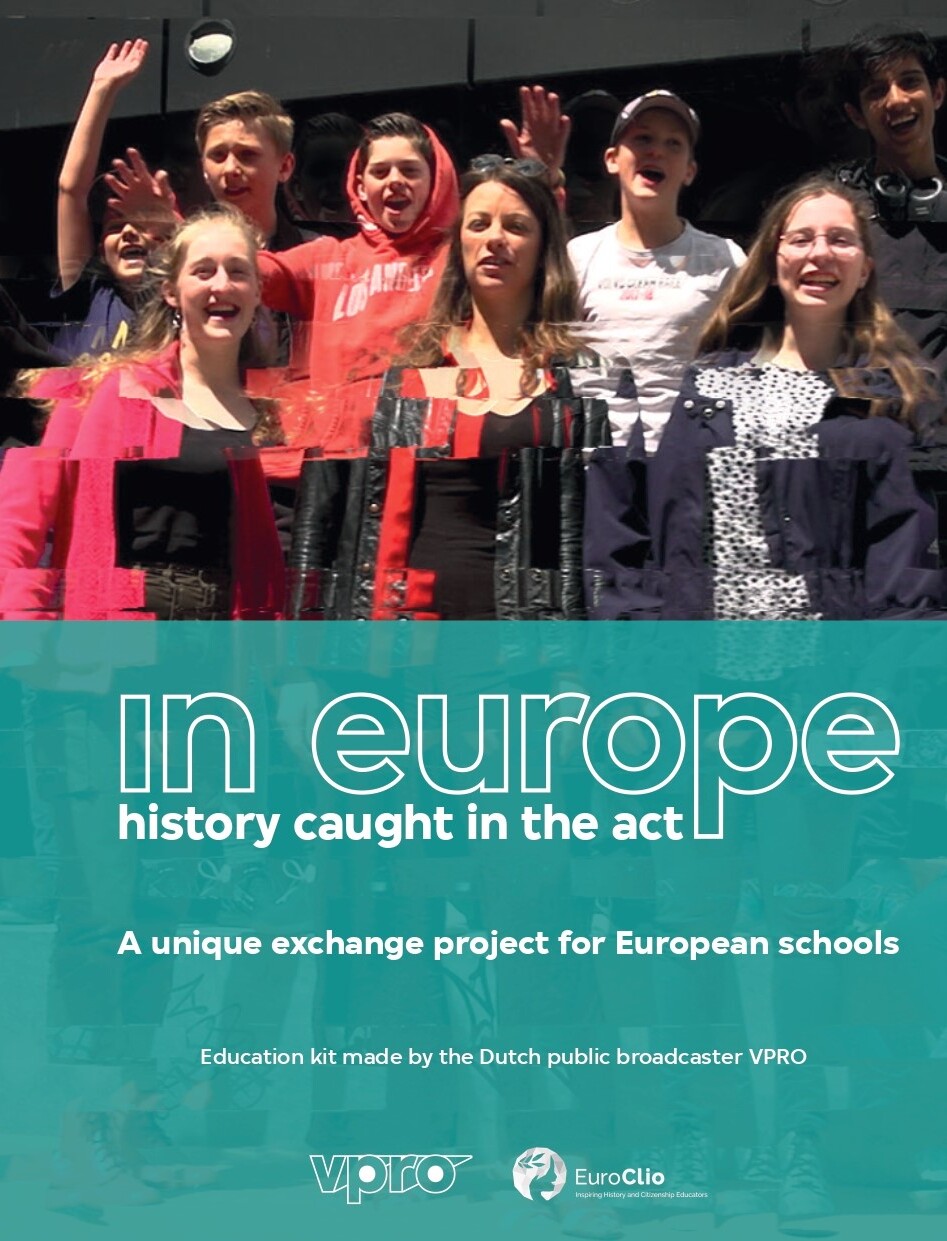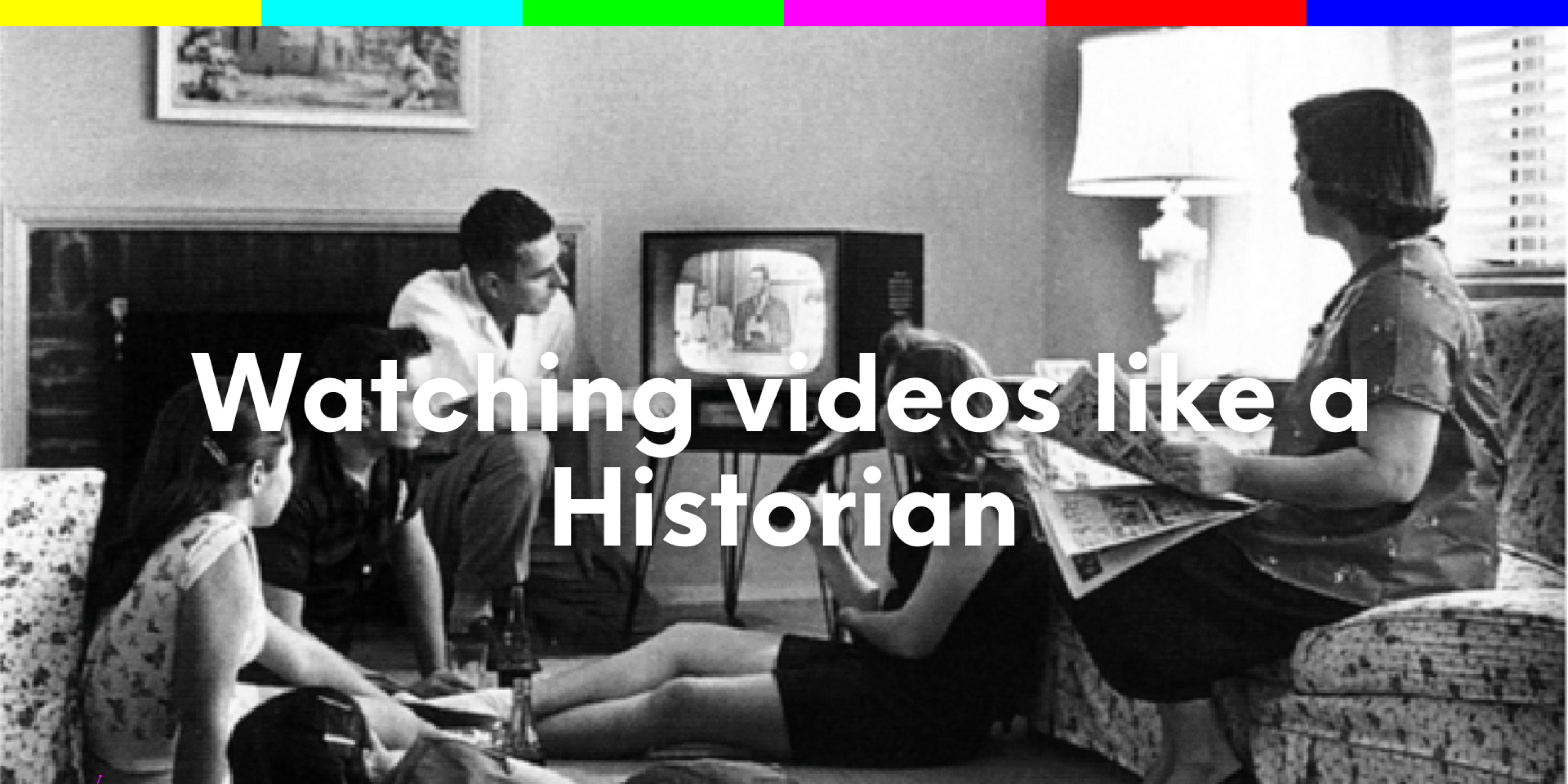By Andreas Galanos and Theodora Gkeniou
Tackling a hot topic during the COVID-19 pandemic, the probing question for this teaching practice is “should vaccinations be mandatory?”. The practice aims to link history with everyday lives and contemporary issues that directly impact students.
The practice
For this teaching practice, Andreas Galanos and Theodora Gkeniou put together a series of resources about the history of plagues and the measures taken by various societies on how they dealt with these phenomena – including the inventions of the first vaccines. The teachers also included some cross-curricular work on ancient history with reference to the founders of medicine.
The questions and topics that students were asked to tackle as historical background included:
1. Plagues
Students study Europeana and Historiana resources and define similarities with the COVID-19 pandemic.
Questions to include:
- Have there been many pandemics throughout history?
- Who did people blame for them?
- What precautions were taken to tackle their spread?
- How did science contribute to the understanding of the plagues?
- Did people trust doctors and science?
- Has quarantine been implemented to stop the spread of plagues?
Andreas Galanos got the students to write for- and against-arguments and they were able to debate this with each other. This is a rather different approach to the typical curriculum in Greece which primarily asks students to complete essay assignments based on history research done in class. The two teachers ended the lesson with a voting session where students were called to give a vote on mandatory vaccination based on information they found through their own research.
Democracy is at the core of this practice – democratic decision making, the topic was just a trigger for this bigger version of democratic decision making and its role in society with student/active citizen participation. It was important to have their voices heard through some kind of polling or voting system in order to have the final word. – Theodora Gkeniou
2. Vaccination
Students study Europeana resources and find out about the history of vaccines, the way people received them and the voices against them.
Questions to include:
- How is the etymology of the word vaccine related to the history of vaccination?
- When was the first vaccine invented and by whom? To prevent which disease?
- How did people react to them? What were the most common fears? How were these fears depicted in pictures of the time?
- Did vaccines work? Has there historically been a significant fall in the number of deaths thanks to extensive vaccination?
- Was vaccination ever mandatory and in which cases?
- Has there been resistance to vaccination in the past? What were the arguments against it?
“Most of the framing came from the issue that a lot of the student opinions were coming from their parents’ views and carried on by the students without any critical thinking. When the students now look at this issue and research it, it is interesting to see their reactions when they are impressed by something similar in history. They are able to see similarities in the rhetoric about vaccinations nowadays, and they are also impressed by how many plagues have occurred throughout the centuries and how all the precautions were so similar, they know this is not a one of a kind phenomenon.” -Andreas Galanos
Obstacles and lessons learned
Both in tackling the COVID vaccinations or when adapting to a different historical context, it will be key to be able to read the classroom. Certain questions might be very controversial and very difficult to deal with and some such topics can be addressed in a classroom and others cannot, depending on the age of the students as well as the relationship the teacher has with the students, time, place, atmosphere, and school culture.
The teachers interviewed pointed to the conversation and debate about LGBTQ+ rights that is taking place in Greece as a topic they could tackle with a similar strategy, including having students research how things are in other countries. At the same time, such a topic may be too difficult for some teachers or in certain classroom settings. They also point to the importance of linking the subject at hand with the curriculum, which could be a challenge in adapting such a strategy to a highly prescriptive educational system.
The effect of the practice
A key benefit of the practice was that it helped students gain real world experience on how to take part in debates and be active members of a democracy, impairing critical thinking through working with historical sources and linking these to contemporary debates.
Adaptation
The teachers suggest that any “hot issues” can be addressed in a similar way, with the most immediate one being the war in Ukraine: “It is not so common in Greek education but dealing with the war in Ukraine and which side are you on is something that might cause some debate in the classroom. The main thing is to go back to historical resources to decide about the current issue.”
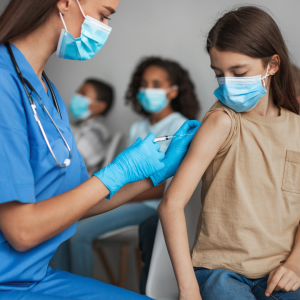
About the interviewees
Andreas Galanos is a Greek teacher of language and history in Thessaloniki. He is also a member of the Europeana User Group.
Theodora Gkeniou is an English and history teacher at the senior high school level. She is also the Europeana Education Ambassador for Greece. Andreas and Theodora have previously collaborated on content and learning materials for Europeana.
Background to the teaching practice
The two teachers involved wanted to prepare a proposal on a topic that is relevant to today’s modern considerations, and what is more contemporary than the issue of whether to get vaccinated or not? It was also a topic directly linked to literacy and misinformation spread by the media, thus they wanted to address a hot issue in the present through the lens of history.
When the school year started, very few students were vaccinated in junior high and they didn’t want to get vaccinated. It was an attempt to get the students to reflect on the topic without directly telling them to get vaccinated. We wanted the students to actually think for themselves and to use historical knowledge to tackle this topic in hopes that the fake news and conspiracy theories would be analysed more critically. -Andreas Galanos
Target age group: 14+
Prerequisites for this activity:
- The particular teaching practice was used with sources from Europeana. For students to research this theme themselves a basic level of English is needed;
- The teaching practice included elements of ancient history, including the founders of medicine
Format: Digital, blended or in person. Theodora and Andreas implemented the strategy over several lessons in the span of a few weeks.
Duration: 4-6 hours in total.
Teacher preparation: Research on history of medicine, finding appropriate sources using platforms such as Europeana and Historiana
Application and adaptation:
- Andreas and Theodora suggest that the teaching practice can be replicated with any “hot” topic, such as the war in Ukraine.
- Teachers may want to provide students to sets of sources or introduce them to certain databases/platforms, such as archives. By doing so, students are more supported in their research and are less likely to get overwhelmed easily. However, this guideline is only designed as a stepping stone for learning to independently research.
Further reading: Explore europeana.eu for free to use sources; Historiana.eu source collection on the history of medicine and anatomy.
Written by Evangeline Procopoudis and Andreas Holtberget on the basis of an interview with Andreas Galanos and Theodora Gkeniou conducted by Birgit Göbel and Evangeline Procopoudis in spring 2022. This was done as part of the collection of teaching practices for the Critical History project with co-funding of the Erasmus+ Programme of the European Union.
The European Commission’s support for the production of this publication does not constitute an endorsement of the contents, which reflect the views only of the authors, and the Commission cannot be held responsible for any use which may be made of the information contained therein.

Monument(al) Challenges: Set of Critical Classroom Incidents

Focus Group Research Report (Learning History that is not yet History II)

Teaching History that is not yet History – Teachers’ Guide for Teaching Sensitive and Controversial Issues in the Post-Yugoslav Space

Education Kit on “Social and Economic Inequality in Europe” – VPRO In Europe Schools

Watching Videos like a Historian Online Course

